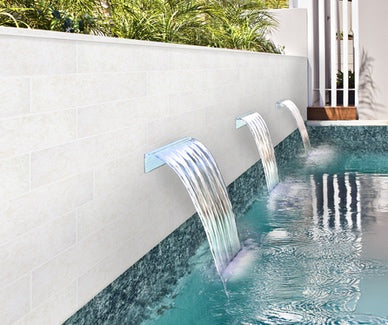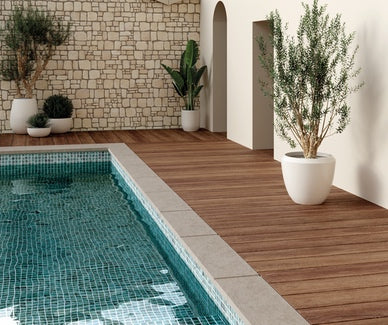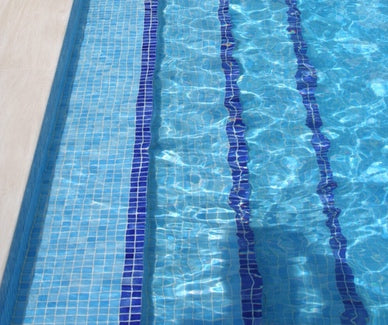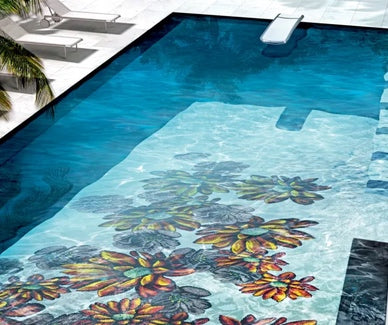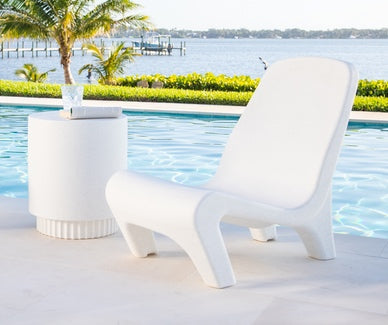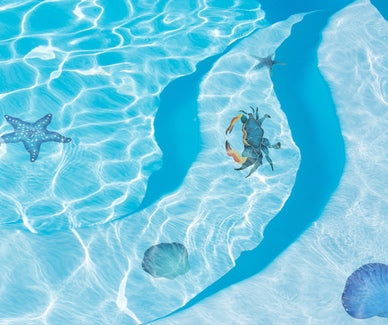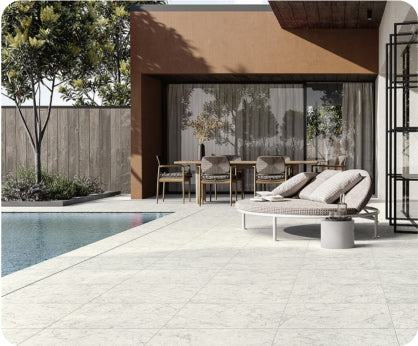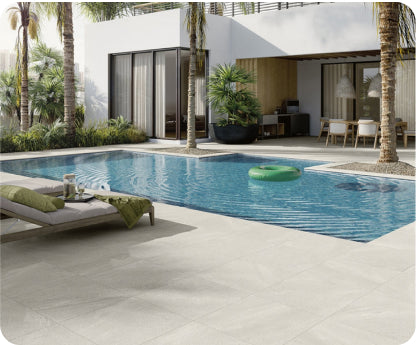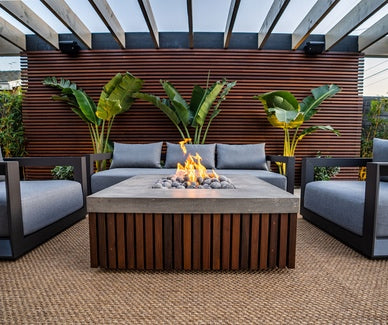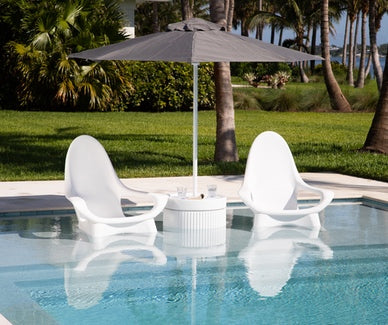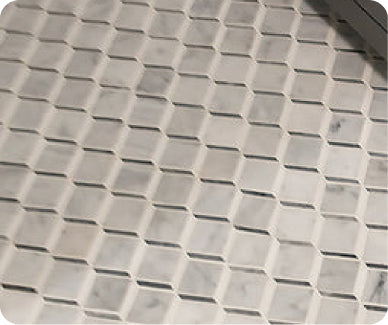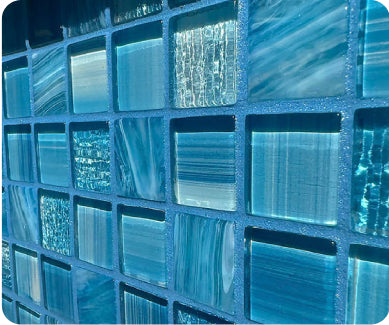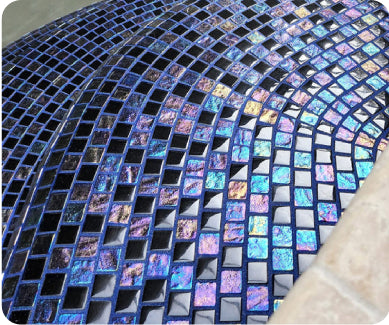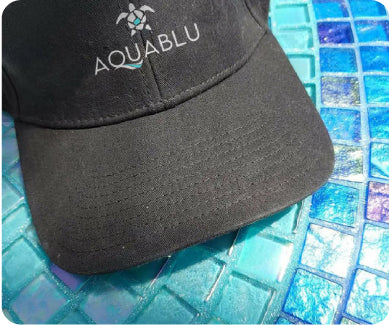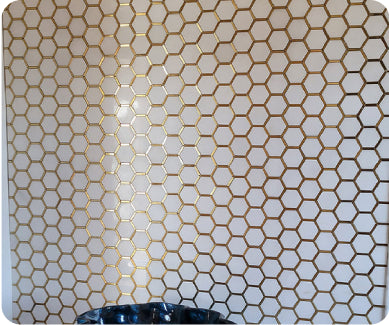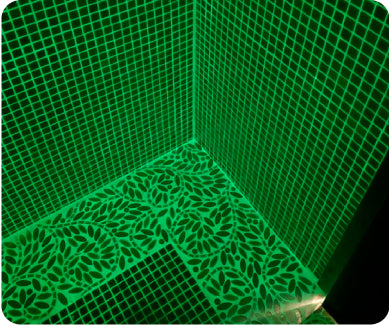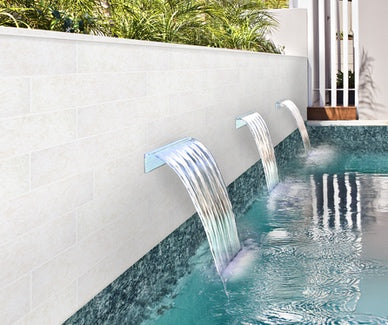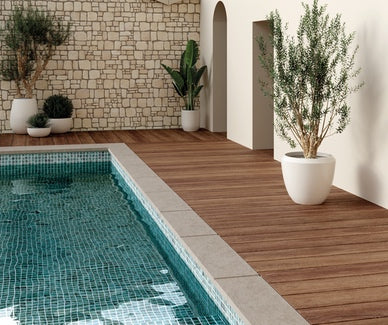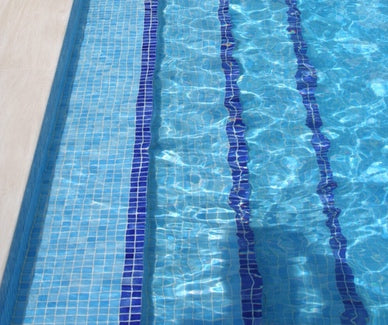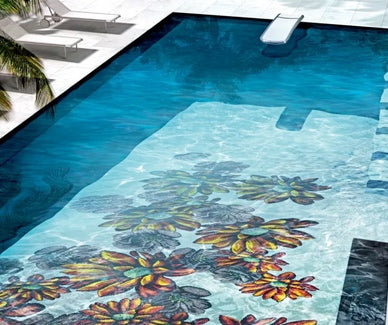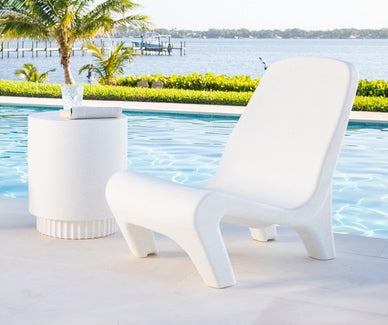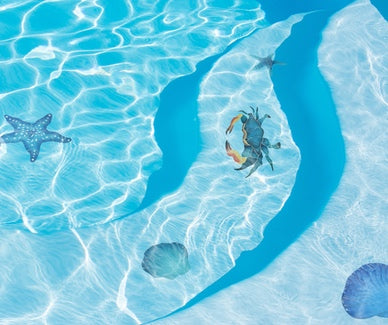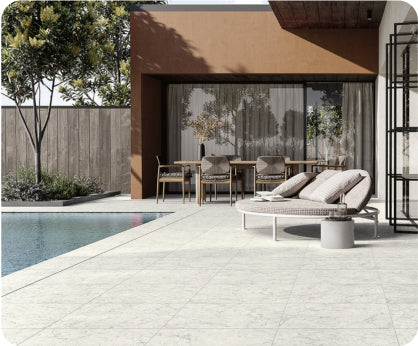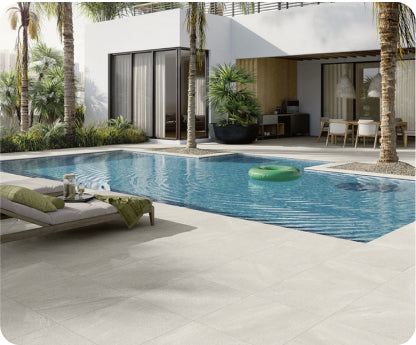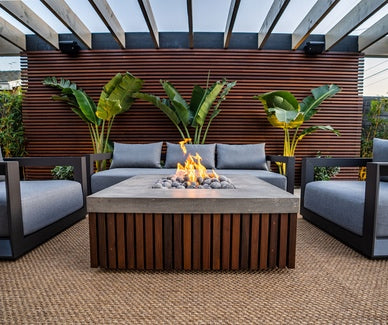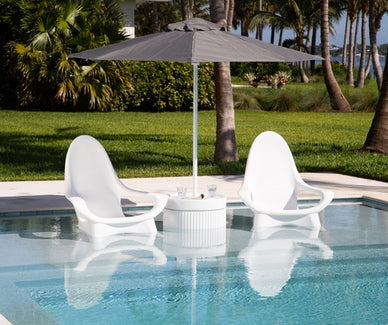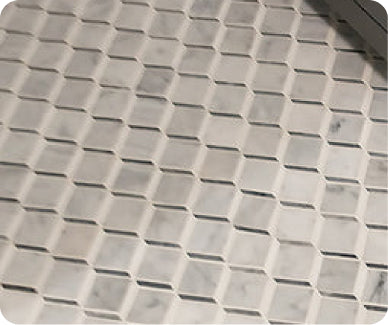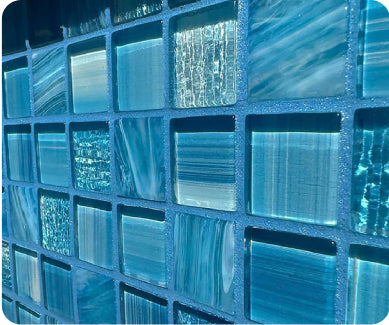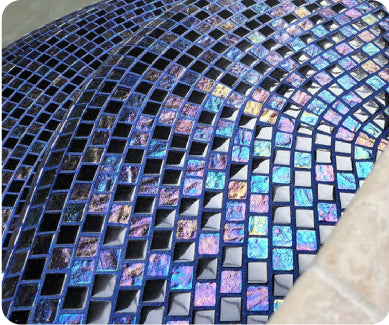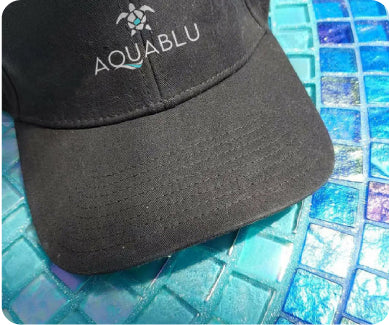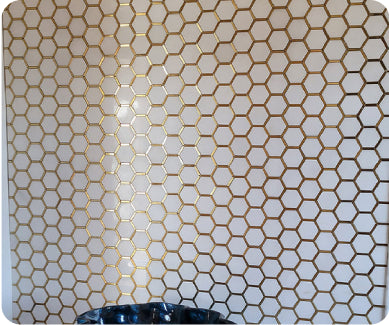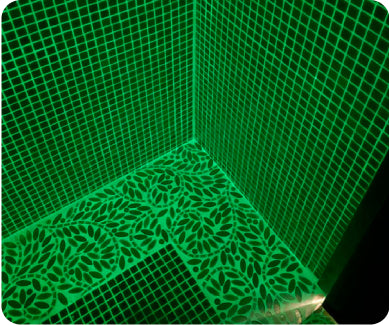5 Tips for Installing Glass Tile in Swimming Pools

The popularity of glass tile has never been greater!
And no wonder. Glass mosaic tile makes any space feel larger by bouncing light throughout the room. It also creates a beautiful visual effect that you can play with by strategic positioning. This shimmer and glistening effect is only achievable using glass tile mosaics, and the possibilities are endless. Choose from hundreds of stock colors, color blends or customize!
Glass tile is clean, hygienic, and easy to clean up. It’s durable as well, and will last without the need for heavy maintenance or upkeep. If you keep it clean and maintain the tile grout, a mosaic tile backsplash, for example, will last as long as your own home.
Whether applied in your home's interior spaces or in a swimming pool, glass tile can be used to create fabulous patterns such as:
- Subway tile patterns
- Herringbone tile patterns
- Fish scale tile patterns
- Hexagon tile patterns
A large selection of glass mosaic tile colors along with pattern versatility fires up creativity that leads to compelling designs for pools - both as a waterline tile and as an all-tile finish - as well as home interior applications such as showers and kitchen backsplashes.
Mosaic glass tile’s surging popularity has even led to new trends using this timeless material as the finish for all glass tile pool applications! AquaBlu Mosaics offers the largest curated collection of glass tile suitable for swimming pools, spas and wet area applications.
To help you on your glass tile journey, here are five tips on how to properly install glass tile in a swimming pool:
Tip No. 1: Proper Surface Prep Is Critical
Your bond is only as good as what you bond to. The surface must be sound, stable and free of contaminants – especially dust.
Whether you have a new pool, or are remodeling your swimming pool we always recommend starting fresh from the concrete shell. For a remodel this will require the removal of the existing plaster or tile, and then thoroughly cleaning the concrete / gunite shell. In most cases this can be done with a high pressure power washer.
For adhering glass tile to a fiberglass pool it may be necessary to scour the area that is being tiled to ensure proper adhesion between the surface and your setting material.
If you are unsure about your application, AquaBlu's team of specialists are just a phone call or email away.
Tip No. 2: Choose the Appropriate Setting Material
Setting materials may be referred to as mortar, or thinset and are used to bond your tile to the substrate. Traditionally mortars are a thick mixture of water, cement and fine sand. Thinsets are typically modified mortars that contain additives for increased bonding, water resistance, and flexibility. Thinsets may also be non-cementitious in its physical composition.
Glass tiles are more fragile than ceramic and porcelain tile, and must be set with a thinset or mortar specified for glass tile. These mortars and thinsets are typically non-sanded, and have added latex and polymers for added flex and elasticity. This is to compensate for the increased amount of thermal expansion and contraction of glass tile over ceramic or porcelain tile.
AquaBlu recommends and distributes two kinds of setting materials catering to installers' preferences of material:
Hyperflex K100 - Cementitious Mortar, and Litoelastic EVO – Epoxy/Poly Thinset.
Both of these high performance setting materials offer key advantages for installing glass tile.
- Extreme elasticity, bond strength and water resistance necessary for pool and spa applications.
- Suitable for indoor and outdoor applications on floor and wall, even in severe usage conditions.
- Pure white in color. Will not alter the appearance of color in translucent or semi-translucent glass tile.
- *Litoelastic - Multi-purpose adhesive suitable for bonding various materials even on non-traditional substrates such as steel tanks, fiberglass, PVC and linoleum.
- *Litoelastic - Suitable for simultaneous waterproofing and laying ceramic tiles or mosaics in shower stalls or wet interior environments.
Manufactured by Litokol, both K100 Hyperflex, and Litoelastic EVO are environmentally safe, and user safe products. Imported from Italy, these products are part of the Zhero Risk program for sustainable building materials, with low emission of volatile organic compounds.
Tip No. 3: Select the Right Tile Grout
After your mortar is fully set, you’re ready to start grouting. As with the mortar, you want a high performing tile grout – one that will not scratch the surface of the glass. AquaBlu offers and highly recommends Starlike epoxy grout.
Unlike cement tile grout, which is made from a cementitious powder mix, Starlike epoxy grouts use crushed colored quartz, and crushed colored glass as the base. The grout is extremely durable, flexible, non absorbent and almost completely stain-proof.
Our epoxy grout also comes in an extremely large range of colors and even special effects, which can be incorporated into the overall design.
And after grouting, if you leave any grout haze on the surface be sure to use a cleaner like our Grout Haze Remover that is approved for use over glass.
Tip No. 4: Install Movement Joints
Expansion joints are essential in glass pool tile applications to handle the stresses of expansion and contraction of your tile based on climatic conditions.
When failures occur in glass tile installations, they are typically due to expansion from exposure to heat either from sunlight or steam. So it’s recommended to incorporate soft movement joints in the assembly. This will allow space for the tile to expand as its heated and will prevent cracking in the glass from compression.
The TCNA movement placement guidelines in EJ171 should be followed. All qualified installers should be familiar with these standards, and it is good practice to bring up these questions to ensure that your tile is being installed correctly and avoid potential installation failures.
Tip No. 5: Ensure Standards Are Met
Not all glass tiles are created equal, and are certainly not all suitable for swimming pool, and outdoor applications. These are high stress environments that demand durability to hold up against not only climatic stresses, but chemical as well. For these applications tiles should adhere to the ANSI A137.2 set forth by TCNA.
For this reason it is very important that you purchase your materials from a credible source that specializes in such applications.
While this may seem like a daunting task, AquaBlu Mosaics has already done the work for you by curating the largest collection of glass mosaic and porcelain tile products for these applications. Since the durability of our tiles offered exceed standards for use in residential and interior spaces you can shop with confidence for all aspects of your residential property.
-------
Have a question about glass tile? Or maybe there’s something else on your mind. Talk to one of our experts. You can call us at (800) 971-1442 or fill out our contact form. You can visit our website at https://www.aquablumosaics.com/.

